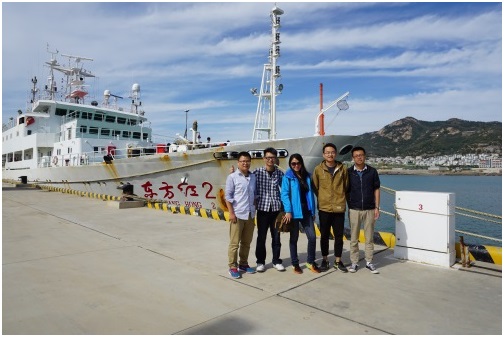The earth’s 4th pole exploration voyage and the 10,000m deep sea action plan of the National Laboratory for Marine Science and technology were launched on Sept. 3 and the return voyage was completed smoothly on Sept. 29. This voyage used the carrier of "Dongfanghong 2" marine research ship and covered the main observation area near the Mariana Trench in the Western Pacific. Seven units participated in this scientific investigation, including XIOPM, Ocean University of China, Institute of Oceanology, Chinese Academy of Sciences, CSIC Institute No.701, Qingdao Institute of Marine Geology, the First Institute of Oceanography, SOA and Yellow Sea Fisheries Research Institute.
XIOPM has carried out the research of underwater optics technology since 1980s, and the research covers many fields such as underwater long-distance imaging, underwater spectrum detection, underwater multi-parameter sensing and underwater laser communication, etc. In this voyage, XIOPM’s test group conducted relevant tests of underwater imaging system and underwater spectrum detection equipment, etc. and successfully got relevant test data.
The "Dongfanghong 2" marine research ship, namely the carrier for this scientific investigation task, is the most advanced comprehensive marine research ship and comprehensive marine moving laboratory in China. It can work for comprehensive survey and some special surveys of multiple marine disciplines, and for analysis and research at the same time. In this voyage of scientific investigation, Dongfanghong 2 successfully completed many investigation tasks of recovery of 10,000m deep-sea submersible buoy, collection of the deposit mud sample at the depth of 4,00m underwater and the water sample at the depth of 10,500m, multi-beam topographic survey and CTD section survey, etc.
Marine life, marine ecology and submarine geology in deep sea area are significant for study of earth ecology, climate, origin of life and earthquake forecast. However, people’s recognition of deep sea at present is still at the starting stage, and the recognition of 11,000m deep sea is far behind that of the moon surface. The 10,000m deep sea action plan will greatly promote the development of China’s scientific research of deep sea and gulf.





